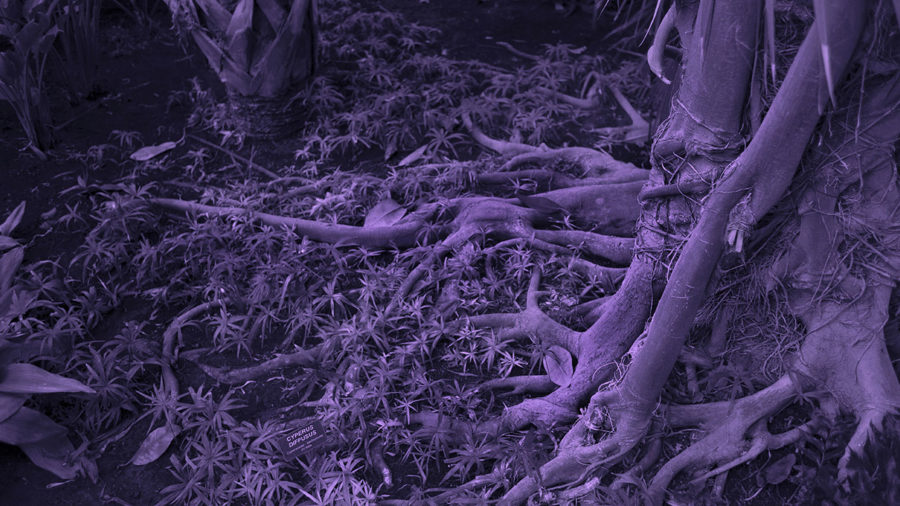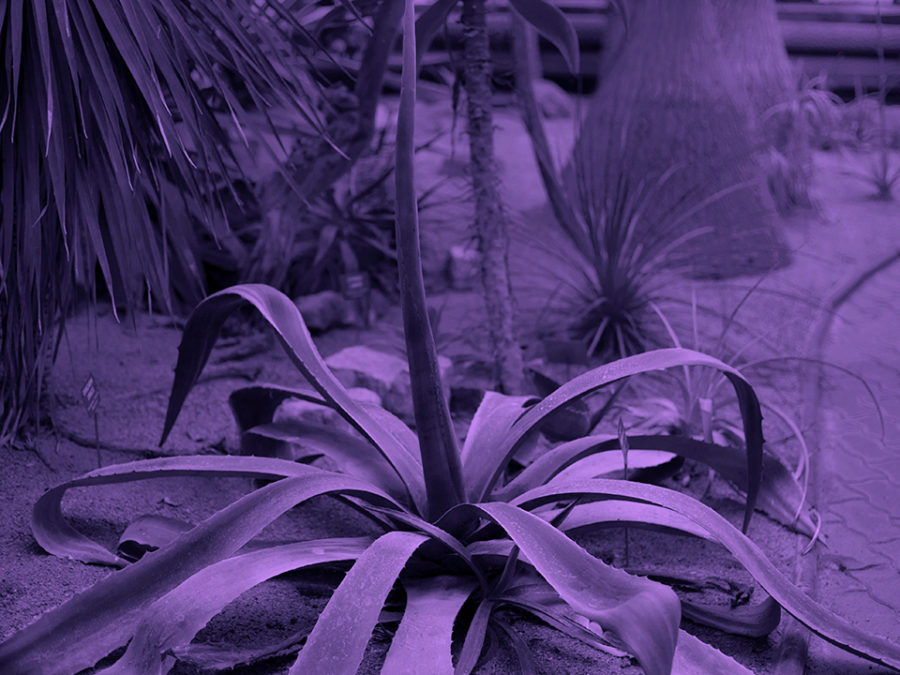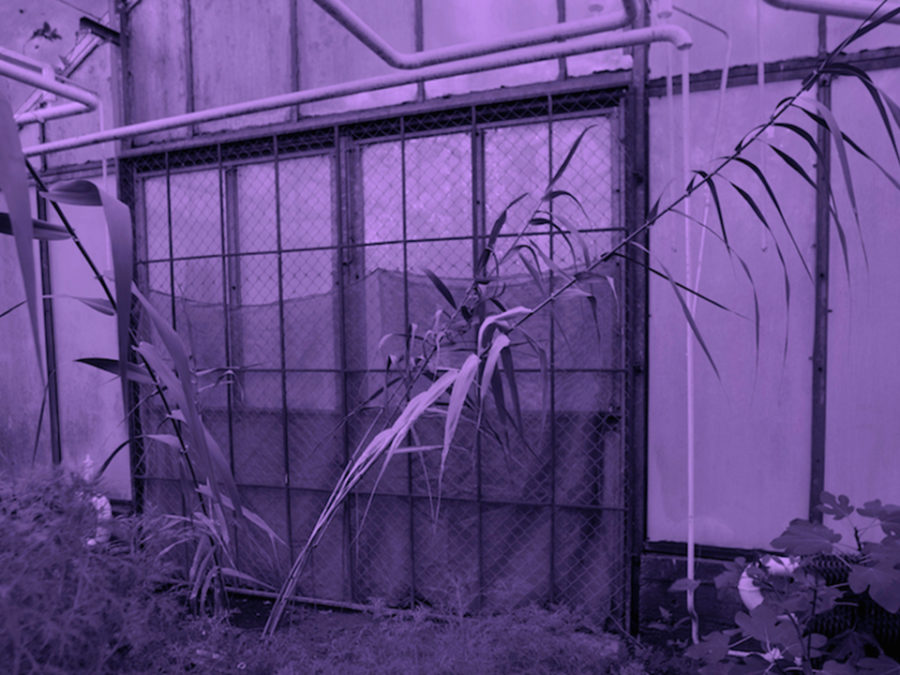Đa búp đỏ translates as red buds. They belong to a community of fig trees whose survival depends on symbioerotic relationships with a species of wasp. Their aerial roots can bridge chasms and heal wounds in interaction with human hands. Medicine is made from their fruits, leaves, sap, bark and rootlets to relief pain and inflammation, to cure mouth sores and parasitic diseases, to heal rashes, warts and corns. In the grammar of extraction of European imperial languages, Đa búp đỏ as well as the amazonian Sharinga are called rubber trees. Natural latex, the milky white substance that runs through them, became a material condition for the techno-industrial-military complex of colonial modernity. Botanical gardens in the colonial metropolises and in the colonized “peripheries” cultivated and tested both species serving as nodes in the imperial circuits of knowledge during the so-called rubber boom in late 19th and early 20th century.
The palm house in botanical garden in Olomouc hosts a big old Đa búp đỏ. When it was built in 1926 and 1927 large territories of the trees native ecology in South East Asia and the Indian subcontinent had been turned into rubber plantations. During those same years death rates among workers in some of the biggest French colonial plantations in Vietnam reached 47%. Set in the haunting space of an ex-colonial rubber plantation in Central Vietnam, Phuong Linh Nguyen’s film Memory of the Blind Elephant is a tender portrait of the complex economies of interspecies trauma and resilience in the face continued extraction and destruction.
Image: Đa búp đỏ (ficus elastica) in the Palmhouse in the Botanical Garden Olomouc, November 2020. Photo: Monika Abrhámová
Phuong Linh Nguyen’s multidisciplinary practice spans installation, sculpture and video. Based in Hanoi, she is concerned with geographic cultural shifts, traditional roots and fragmented history in Vietnam. Her works contemplate upon the visible/invisible truth, form and time, and convey a pervasive sense of dislocation and the ephemeral. Phuong Linh was nurtured by living among and working with different generations of artists at Nha San – the first non-profit artist run art space for experimental art. In 2011, Phuong Linh co-founded Nha San Collective, a group of young artists dedicated to pushing the boundaries of expression in Vietnam as well as supporting other young artists in the community.



